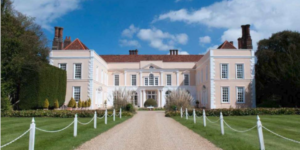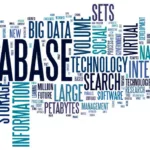Luxury travelers of all ages have embraced the digital lifestyle. This transition has created dramatic changes in the luxury consumers buying journey that hotel brand owners need to address. Digital marketing promotes Luxury Hotels and their brands through different avenues of electronic media. These avenues include web pages, emails, instant messages, social media posts, and video casting. A well-run digital marketing campaign is a mix of news, entertainment, and social interaction that draws in consumers with personalized and relevant content.
Let’s look at 10 tips to advance marketing for Luxury Hotels.
1. Know the Luxury Services
Who are these luxury services consumers? Well, the 2017 Deloitte Luxury Multicountry Survey for Global Powers of Luxury Goods found that luxury purchases are shifting from physical goods to experiences. Travelers want lifestyle experiences that demonstrate their values and status. This is good news for luxury hotels. Luxury travelers want more than a place to stay while they pursue these experiences. These travelers are looking for hotels that offer or enhances the experience. They want to stay at a hotel they can brag about.
2. Understand the Luxury Services Buyer’s Journey
The Age of Digital Darwinism, a new report from leading research firm McKinsey & Company, reports that nearly 80 percent of luxury shoppers are “digitally-influenced”. The impact of digital marketing on luxury consumer behavior varies by category and price-point. However, the evidence shows that the traditional customer journey has transitioned into a fragmented hopscotch where luxury service customers engage with up to 15 touchpoints before making a purchase decision. McKinsey & Company estimates that 50 percent of these touchpoints are currently digital and that percentage will continue to increase.
3. Match Marketing Tactics to Ideal Customers
Luxury hotel brand managers need to generate demand by focusing on those customers who aren’t familiar with their hotel, but only those who can afford it. They also need to provide layered messaging to consumers who are working on the 15-point buyer’s journey. Both of these goals can be met through comprehensive marketing campaigns including paid search, social media, and traditional marketing.
4. Tell Stories About Your Brand Instead of Explaining Benefits
Affluent consumers are looking for experiences rather than ownership. Experiences are sold through stories, not a list of benefits. Content that tells stories backdropped by fine dining and luxurious accommodations are more attractive to high-value customers than a list of services that can be found at any fine hotel. Affluent travelers want to make their friends jealous with stories of front row seats at live performances, pictures in front of unique sculptures, and cultural immersion.
5. Create Inspirational Content
Aspirational content fits closely into story-based marketing but reaches out to future luxury consumers. There are many millennials on the cusp of wealth, but not yet able to afford a luxury hotel. Aspirational content draws in these customers as affluence approaches. Where will they go after they become paper-millionaires for an IPO? What experiences can they post on Twitter or Instagram to show that they have arrived?
6. Publish Content That Shows Off Your Customer’s Status
The luxury market stays stable even during economic downturns partially because luxury consumers want to display their status. The Deloitte Survey mentioned above found that 56 percent of consumers make luxury purchases to display their status to colleagues, friends, and family. Luxury brand marketers create the backstory for status-enhancing customers by publishing marketing content that displays the values consumers want to associate themselves with. Consumers build on this framework to share their experiences on social media. Hence, more content is published connecting the hotel’s brand to a high-status lifestyle.
7. Perfect SEO
Powerful content marketing stimulates conversations, pushes consumers along the buyer’s journey, and builds a luxury service brand. Thus, SEO has moved far beyond the days of embedding keywords. Furthermore, successful SEO gives consumers a reason to click through to new content on a website or read more about a friend’s visit. Therefore, SEO is one of the fast forward marketing technique that Luxury Hotels should implement.
8. Stay on Top of Marketing Analytics
Digital marketing has the advantage of producing vast amounts of data. Although analyzing this data can be overwhelming to math-phobic marketing teams, this analysis is key to winning future market share. Published studies and surveys only provide a general picture of the luxury services consumer. Analytics pinpoint the wants and needs of consumers regarding a specific hotel brand. This is the research that differentiates between effective marketing tactics and those that need to be redesigned or even discarded.
9. Partner with a Digital Marketing Agency to Extend In-House Marketing Teams
In-house marketing teams know a hotel’s brand and provide essential services, but strategic partnering with a digital marketing agency can extend those services for Luxury Hotels. Analytics is one area that many marketing teams need to strengthen by augmenting the current team either through a new hire or partnership. A digital marketing partner can also provide access to skills that in-house teams only need occasionally such as videographers.
10. Align Marketing Tactics Across Channels
The heart of successful branding is a consistent message. This is still true in the age of digital marketing. Consumers in the luxury services market expect brands to display the same story and values wherever they encounter it. Any point of disharmony is a potential detour on the buyer’s journey to another luxury hotel brand.
Conclusion
Digital marketing is quickly transitioning into a necessity for the luxury hotel market. Not only SEO and content marketing critical to continued growth, but digital marketing based on marketing analytics increase brand equity. Luxury consumers of all ages have embraced the digital lifestyle and demand a consistent brand experience across channels and geographic destinations. This consistency can only be created and maintained through comprehensive digital marketing campaigns focused on the luxury consumer experience. The 10 tips above provide the foundation for a digital marketing campaign designed build long-lasting connections with luxury services consumers.








